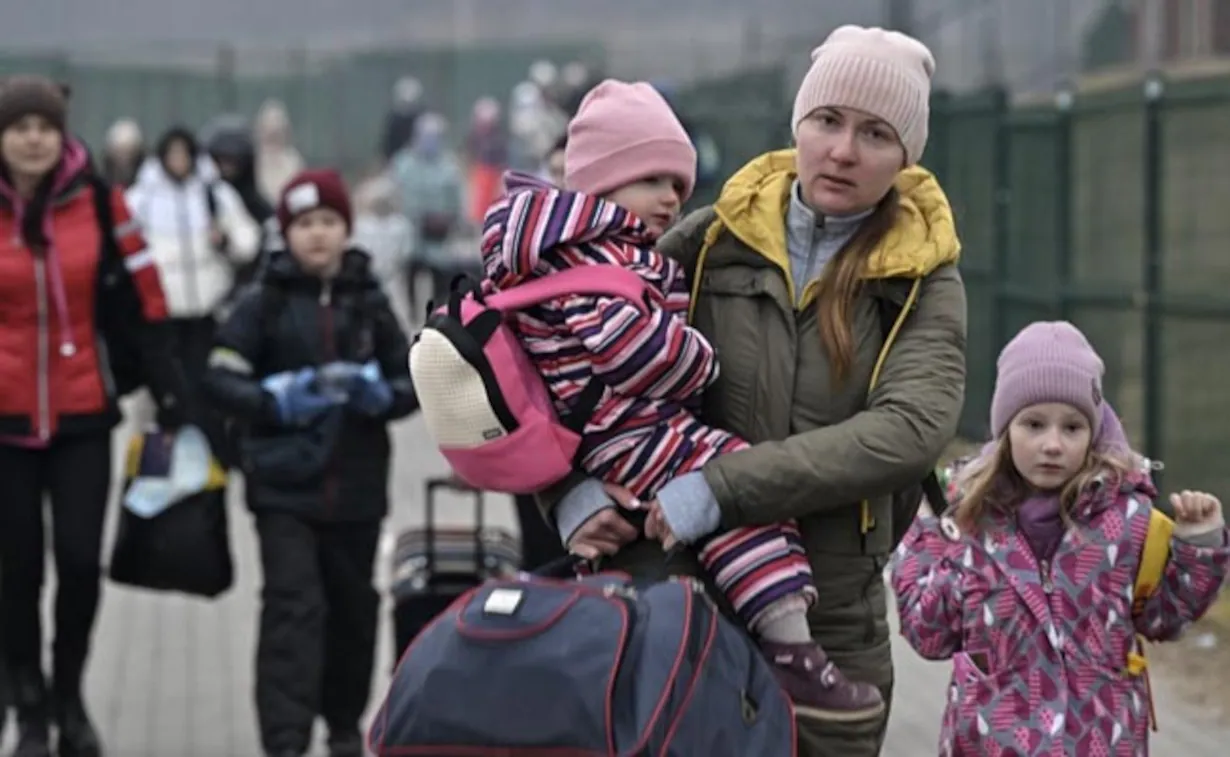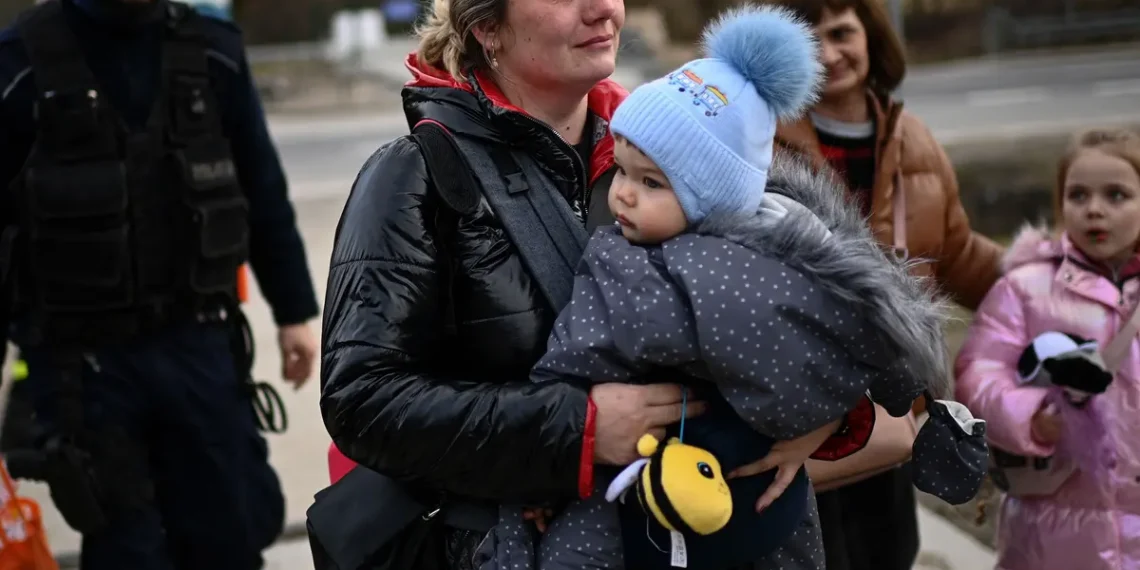Upon arriving in England nearly two years ago, Mila Panchenko believed she could finally find stability after fleeing the war-torn city of Mariupol in Ukraine. However, her journey has been fraught with uncertainty, as she has been forced to move residences four times since then and now finds herself declared homeless at 55.
With her apartment in Mariupol destroyed by bombings and subsequent demolition, Panchenko’s future hangs in the balance as she grapples with the challenges of displacement.
Sharing her plight from temporary accommodation provided by the YMCA in Hatfield, Panchenko expresses her vulnerability, questioning what the future holds for her under the British government’s care.
Her sentiment echoes that of many other Ukrainians, who face a heightened risk of homelessness compared to other families in the UK, according to research by the Red Cross. With over 200,000 Ukrainians seeking refuge in the country, concerns about their long-term settlement linger amidst the ongoing conflict in their homeland.
This predicament extends across Europe, the United States, and Canada, which collectively host over 6 million refugees since Russia’s invasion of Ukraine in 2022.
While there is widespread sympathy for the Ukrainian refugees, governments are grappling with the financial burden of providing long-term support amid the protracted conflict.

Recent policy changes in the UK, such as reducing the initial stay period for new arrivals and closing certain resettlement schemes, reflect the challenges authorities face in managing the influx of refugees.
Despite pledges of support, some governments are scaling back assistance, citing the need to streamline provisions and control spending.
In Poland, for instance, welfare assistance for Ukrainian refugees has been extended only until June, departing from EU guidelines advocating support until 2025. Amidst these uncertainties, refugees like Panchenko are left in limbo, uncertain about their future and longing for stability in their adopted homes.





